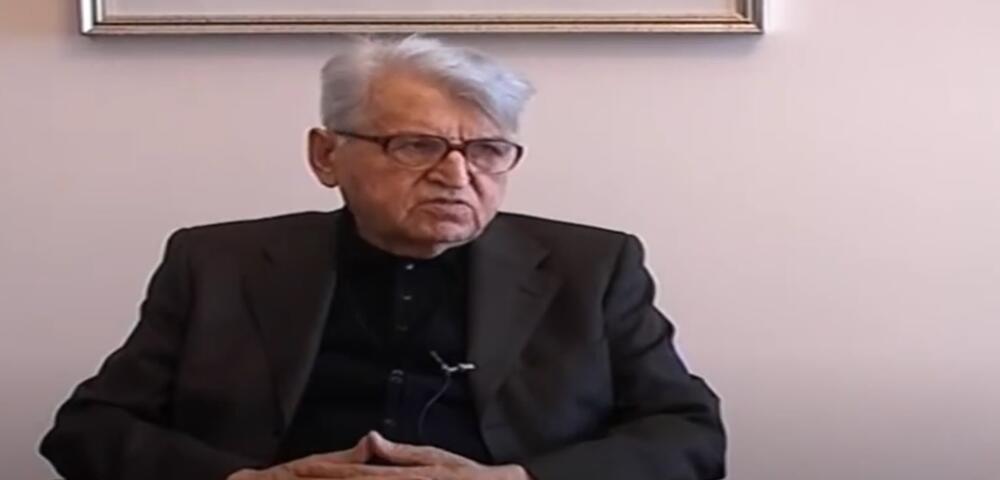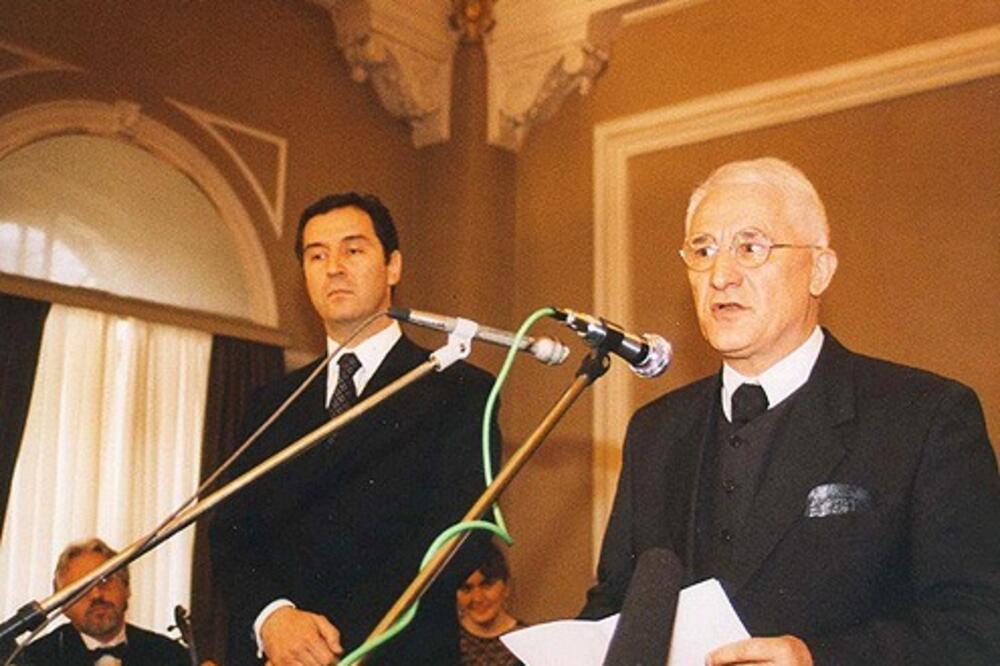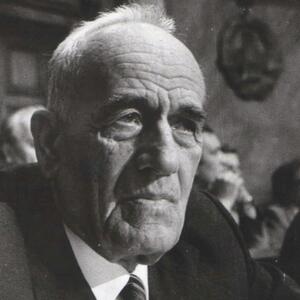(Continued from last Saturday)
After the coup Milošević's henchman, the so-called AB revolutions, changing ideological and national priorities - naturally, since it was a child of politics from the beginning - will also change Njegoš's award.
In the following period, until the temporary "shutdown" in 2001, the prize will be awarded three times. The first and third of those awards caused a real storm and a wave of polemics and reactions. The award accurately reflected the national policy of the then (Bulatović-Đukanović) regime: in the XNUMXs, namely, only Serbian writers were awarded.
From Dobrica to Matija
Dobrica Cosic was awarded in 1990, at a time when he himself was much more a political than a literary fact.
The reactions of the Montenegrin public were, traditionally, divided. A good part believed that Ćosić was awarded as a national ideologue, not a writer. Soon the writer will Division i Roots to become the short-term president of Milošević's state provisional government. It will be sad how Milosevic and Seselj removed when it started to bother them. That is the end of his political adventure. However, it is important to emphasize: Ćosić was in one way or another an inspiration and patron of Serbian nationalism in the flourishing SFRY phase, but his Serbian nationalism did not enter the zone of the Chetniks. And that's exactly what happened everywhere in the nineties. Ćosić was also reserved towards the SPC - and he often referred to high priests as "obscurants" in his diaries. An interesting detail in his book Writer's notes is a description of the arrival of the Montenegrin ruling trio (Bulatović, Đukanović, Marovic) visiting Ćosić while he was resting in Igalo. The Montenegrin champions promise him solid support for his i Panicev conflict with Milosevic. Ćosić was stunned when he realized at the very session in Belgrade that the promises of the Montenegrin leaders, no matter how convincing they seemed, were actually - false.

Although he was awarded in 1990, due to the war and political circumstances, the award was presented to Ćosić only in 1992, for his presidency. But not to Cetinje (due to fear of protests), but to Njeguši, where he came by helicopter together with Momir Bulatović. A group of liberals made their way to Njeguš despite numerous police checks and Ćosić could see the demonstrators, even from a distance. The intention of the participants of that protest was to return the writer's books from their libraries (Hamsunova penalty), but they couldn't get that close...
Subtle poetic master Stevan Raickovic (1928 - 2007) received the Njegoš Award in 1993. The awarding of Raičković is one of those awards that did not cause negative reactions.
The aged bard could almost be said not to have belonged to the sinking time that age had brought him. New times, new customs, the momentum of primitivism... all that was far from the spirit of Raičković's poetry. The great lyricist did not belong to the age of epic ecstasy.
By the way, Stevan's parents were educators, the future poet was born while they were on duty in Subotica, and they were originally from Montenegro. Raičković's uncle was a pre-war communist and a prisoner, a shot partisan Vasilije Vaso Raicković. In conversation with M. Maksimović Raičković speaks beautifully and tenderly about his uncle, whom he vaguely remembers. "And a long street in Podgorica is named after him," he explains in that conversation.
Another SANU academician, also of Montenegrin origin, was awarded in 1997. That award was one of the most controversial, in several ways.
He was awarded Matija Bećković, a popular (even populist) poet and national worker. Bećković was often even harsh in his statements about Montenegro, so it is understandable that the laureate caused the anger of a good part of the domestic public.
In his poetry, Bećković often recycles the language and logic of ancient epic literature, including Njegoš. ("Dear God, there is no greater miracle than what they write after Njegoš. There is only one place at the top, and it will never be empty, and there is no end to the worse below... And if he had not thundered like that, we would have had to stutter from the beginning.")
This kind of deification of Njegoš and classical epic antiquity ("There is no Montenegro without Turks" says Bećković) was an ideal matrix for ordinary political conservatism - where everything new is suspicious and where we are expected to stick exclusively to the so-called verified values, i.e. "prescribed" opinions. This is exactly what happened to Bećković in the XNUMXs. He became a national tribune, who when he speaks seems to be dictating...
However, an additional story surrounding that award is also interesting.
The award decision was made at a time of schism in the DPS. The usual day of award presentation fell on the presidential term of Momir Bulatović, which was coming to an end. But the prize was not awarded then - moreover, everything was done, sometimes with ridiculous explanations, just to prolong the awarding as much as possible. It was important to Đukanović that he present the award to Bećković. He probably wanted to amortize the "Serbian corps" in Montenegro, since the DPS came out of the division with a pronounced "Montenegrin" rhetoric. (If they wanted a Serbian poet, why didn't they reward him Ranko Jovović, is a better poet than Matija? But, obviously, it did not have an immediate "use" value like Bećković.)
An interview will confirm that this award was the subject of "courtly" intrigues and combinations Emir Kusturica, published in 1998 in Vijesti with the title "I persuaded Đukanović to reward Matija". Kusturica was then a prominent member of Đukanović's court team.
By the way, Bećković's opponents were, among others, Radomir Konstantinović i Aleksandar Tisma. As much as the awarding of one of these two great Serbian (and European) writers would have been more appropriate for the moment of the emancipation of Montenegro, as much as it would have been more important for the annals of the award itself, the fact that Đukanović could not convert the two of them into a "political charm" as what he did with Bećković. It was a simple policy: pretense and calculations always take precedence over any form of emancipation. That's why she ended up the way she did.
Konstantinović and Tišma will be candidates during the next award as well. Which didn't happen.
Break and wander
From awarding Bećković to 2009 and the award Mirko Kovač, His award was not awarded. How did it come about?
Before the regular awards in 2001, the public learned that Montenegrin modern classics were shortlisted Cedo Vuković, writer Khazar dictionary Milorad Pavic, Aleksandar Tišma, Radomir Konstantinović and the somewhat forgotten ones Branimir Šćepanović ("A mouth full of dirt").
The judging took place until the narrowest selection, which, as announced, included Milorad Pavić and Brana Šćepanović.
Fierce reactions from the public followed - ignoring Vuković, Konstantinović and Tišma - clearly indicating that the award continues in the same tone as since 1990.
The jury that worked in the composition of - Slobodan Tomović, president, and members - Vuk Minic, Radomir Ivanovic, Aleksandar Jerkov, Branko Banjević, Žarko Đurović i Vladimir Osolnik, in his deliberations he broke through the set deadlines. This led to polemics among the members, and in the end to a rather surprising - self-dissolution of the jury, after President Tomović submitted his irrevocable resignation.
The prize was not awarded either then or for the next eight years. The referendum atmosphere, as well as the need to institutionally redefine the process of Montenegrin emancipation, turned out to be a clear demand for the political elite: a new (and different) Njegoš award is needed.
The fact that the legal framework (including the propositions of the award) has been changed several times since the renewal, and the yearbook of the award was not devoid of controversies even in that period, is perhaps indicative of how valid the solutions that followed will be.
(Ends next Saturday)
Bonus video:






